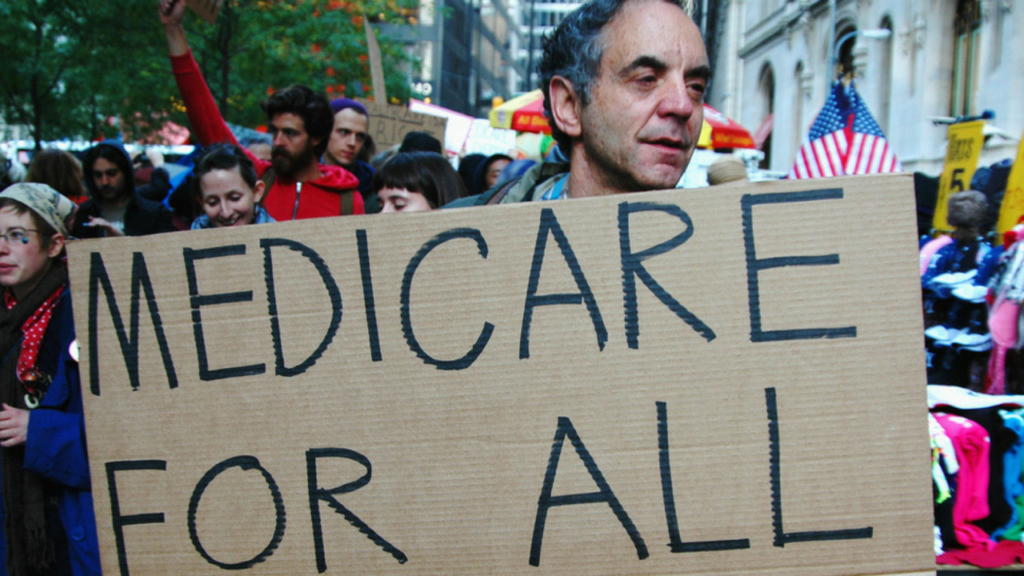Small business owners and entrepreneurs across the U.S. are tired of paying exorbitant prices for low-quality healthcare.
Most entrepreneurs start out as self employed independent contractors. If you’re at that stage right now, that means you’re likely paying for our own individual health plan, probably through a government-run exchange.
You’re paying exorbitant prices for healthcare — costs that have continued to rise every year for the same mediocre coverage.
And many of you watching are at the point in your business where you’re hiring employees. That means you’re looking at setting up group medical for those working with you to build your empire.
Honestly, you’re essentially in the same situation as those self employed. You’re facing exorbitant prices for healthcare — costs that are going up.
Thankfully, we don’t have to just sit back and take it.
There are immediate solutions for entrepreneurs, and solutions we can advocate for now that will help businesses thrive in the future.
The Big Picture
Today, entrepreneurs—both self-employed individuals and employers—are required to buy health insurance. Or else face steep government fines.
This rule came in 2010, when then-President Barack Obama signed the Affordable Care Act into law. What the ACA did was set up the federal government as our official negotiator with insurers.
This resulted in government-run marketplaces, where employers could buy coverage at rates the government deems affordable.
Here’s the big problem—small business owners don’t agree with government on what affordable means.
Let’s talk facts:
90% of medical costs are currently subsidized by a third party--and usually that third party is the GOVERNMENT.
Over the last 20 years, prices for medical care services in the US doubled--a much greater increase than the 2% rate of inflation during that same time span.
When the government subsidizes healthcare, patients are not as cost-conscious and have little incentive to shop around to compare prices.
In the end, the taxpayers foot the bills for higher cost, lower quality care; and business owners who provide coverage to employees are faced with these same steep prices.
Opposing Views
There are opposing views for every policy issue businesses face. Healthcare is no different.
In this past election cycle, presidential hopeful Sen. Bernie Sanders told a small business owner that she had to provide health insurance regardless of whether she was able to afford it or not.
Some new small business owners don’t see problems with Obamacare, like this whiskey tourism business owner in Kentucky.
While more established businesses, like this construction business owner, aren’t keen on the Obamacare scheme.
Capitalism.com founder and CEO Ryan Daniel Moran gets it.
Less government involved in healthcare means more options for entrepreneurs to solve problems. Even Amazon sellers and partners could benefit. Just listen to Jeff Bezos in this Vanity Fair interview.
https://youtu.be/63-zr3XJ0M4?t=1m32s
#NoFilter
Look — we know healthcare is a sticky subject for people. It’s life and death.
But aren’t you sick and tired of the mess government has made of healthcare?
More than 60 percent of small business owners who responded to a survey conducted by CNBC in 2017 called for the repeal of Obamacare, citing the increased rise in premiums.
There’s a big push for a free market solution to healthcare, and we support that. A more competitive, lean healthcare market would make it more affordable and realistic for small business owners to supply group medical to employees.
For a market-based approach to work, we need transparency in the prices hospitals and medical professionals charge for services, products and prescriptions.
How would our healthcare system operate if prices were more transparent and more consumers were paying out-of-pocket for medical services?
The 15 billion dollar US market for elective cosmetic surgery may have some answers…
Over the last 20 years, the most popular procedures have decreased in price significantly as demand for these procedures increased!
It’s not hard to understand why. The more market competition, transparency, and out-of-pocket payments, the lower prices will be. This is true in any sector, not just healthcare.
So what can you do in your business to cut healthcare costs right now?
Consider direct primary care. This Obamacare-free model provides a streamlining of care, directly to the patient. The only people involved are the patient, employer, and provider. No, insurers are necessary to pay for the costs associated with direct primary care. In fact, prices can drop over 40 percent.
Creating free and transparent market will allow entrepreneurs to provide high-quality healthcare to their workers while keeping more of their capital to grow their businesses.
Let’s make healthcare work for us.
Please share this video with entrepreneurs you know, and post your views on healthcare in the comments. Thanks for watching!
MORE FROM KRISTIN TATE ON CAPITALISM.COM:
• How Our Complex Tax System Punishes Workers, Hinders Business Growth
• 6 Reasons to Eliminate Government Regulations
• How to Solve the Skilled Labor Shortage Problem











